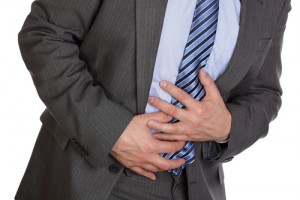Food poisoning is uncomfortable and can be truly horrible to deal with. If you have been made ill from consuming contaminated food, you may be wondering whether or not you can make a case for yourself. The answer is yes! However, time delays that occur between eating the food and the first signs of illness can make it difficult to pinpoint the exact time and food that made you ill in the first place. It may be easier to fight your case if a government regulated health agency has linked a food poisoning outbreak to the food that you ate, but this is not always the case. 
Food poisoning lawsuits typically fall under product liability cases– since you are being sold or provided with a defective product (contaminated food) that injured you (made you ill). There are several approaches you can take in a food poisoning lawsuit. These include:
Lawsuit Approaches
Approaching a case in terms of product liability is one of the most common routes taken in a food poisoning case. Many states have adopted laws that keep you from having to prove how the food that you consumed was contaminated. Most of the time you just have to prove that the food was indeed contaminated and that it did cause your illness.
You may also add negligence claims to your food poisoning case, under certain circumstances. This can be difficult to do, but if negligence is proven, you may be entitled to more compensation.Going this route will require you to track down the chain of suppliers until the food was given to you and made you ill. To do so, you must track every location that the food/ingredients were and who was handling them at the time. Track down the contamination to it’s source is required in a lawsuit, which could unfortunately happen at any stage of the chain of distribution. This could include the food processor, the distributors, any wholesalers, the supplier or the retailer. To claim negligence you must prove not only where the food was contaminated, but that the party in question acted negligently whilst manufacturing or supplying the food, causing the contamination that then made you ill.
This can cause the list of who is liable to grow or shrink. Liability falls on whoever contaminates the food, and possibly any who come in contact with the contaminated food and pass it along to another stage in the chain of distribution.
Protection
The best way to protect yourself against food poisoning is to know what foods are at risk. Though food poisoning can come as a shock and occur quickly without warning, knowing the most at risk foods can help you narrow down what food(s) may have caused your illness. The most common foods that are susceptible to food contamination include:
-
leafy greens
-
eggs
-
poultry
-
tuna
-
oysters
-
potatoes
-
cheese
-
ice cream
-
tomatoes
-
sprouts
-
and berries
Leftovers can also be a great help in building your food poisoning case, since they can actively be tested to see what could have caused your illness. Never fear though, even if you do not have leftovers, it is still possible to successfully win a food poisoning case. With the help of an experienced attorney your chances will be higher. If you have any questions regarding food poisoning lawsuits, contact the Law Offices of Crowe Arnold & Majors, LLP today. Our staff has significant experience in these cases.





